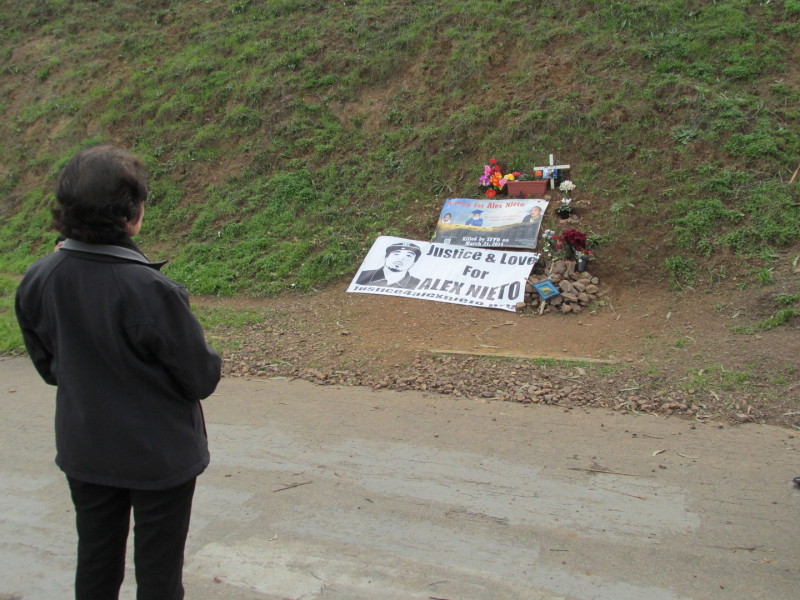"The Long Beach case essentially set out the parameters of when and how these names must be turned over," said attorney Adante Pointer, who is representing Nieto's parents in a federal civil rights lawsuit against San Francisco and city Police Chief Greg Suhr. "The Nieto case was potentially a case of first impression. This was going to interpret what constitutes a credible threat."
A Credible Threat
The Supreme Court ruled that "generally, the public has a right to know the identity of an officer involved in an on-duty shooting." But, the ruling says, "We do not hold that the names of officers involved in shootings have to be disclosed in every case, regardless of the circumstances."
The circumstances involve what the Supreme Court majority calls "particularized," or specific, evidence that "it is essential to protect an officer's anonymity for safety reasons or for reasons peculiar to the officer's duties."
UC Hastings law Professor David Levine said there have been very few, if any, cases that have tested the disclosure requirements laid out in the Long Beach decision.
He said the Nieto case is "one of the first cases, if not the first case, to test the ruling in the Long Beach case, especially in the context that we’ve seen this heightened sensitivity in these police shooting cases."
That heightened sensitivity is not only to officer-involved shootings of suspects, Levine said, but is also affected by the slaying of two New York police officers on Dec. 20.
SFPD and the San Francisco city attorney argued they had a "particularized showing" in the Nieto shooting that warranted keeping the officers' names secret. Suhr described a threat made against the involved officers on a Spanish/English radio program in November.
"There was a credible threat against the officers involved in the Alejandro Nieto tragedy," Suhr said. "We believe he had the capability of carrying out his threats because he’s a violent person. We need to eliminate the chance that he can harm the officers, and then we can put the officers' names out."
Suhr said on the program that the threat was made "almost immediately after the shooting took place." When pressed, Suhr said, "Our information right now is that he’s not even in this country."
An SFPD spokesman confirmed via email today that "it was a phone threat to the station directing the violence at the officers involved." The spokesman wrote that the suspect is still believed to be abroad.
"How are you going to say these are credible threats when this person isn’t even in the damn country?" Pointer said. "If that’s the precedent, any whacko could make a threat, and the police could say this guy made a threat two years ago, and we don’t have to release the information."
Judge Rules for Plaintiffs
Magistrate Judge Nathanael Cousins ruled against the city and set Jan. 5 as the date a protective order blocking the release of the officers' names would expire.
Mission Local covered the Dec. 22 discovery hearing:
Cousins said that without a more straightforward timeline for the threats to be resolved, the anonymity could continue indefinitely, making it prudent to set a date for the protective order to expire since it limits the plaintiff’s ability to investigate the case.
Levine said in light of the Long Beach ruling, it'd be difficult to reach another conclusion.
"The case comes down so strongly in favor of disclosure, I can see why the magistrate would reach that conclusion," he said. "Unless you thought that it was both credible and imminent, meaning in a pretty short time frame, the values of disclosure that the Long Beach case expresses are going to outweigh the vagueness of a less credible threat. But if you’re wrong, and then the name is released, and within a relatively short period of time, we find ourselves with another officer murdered, that’s a really tough decision for a judge."
KQED's Sean McGrier contributed to this report.
